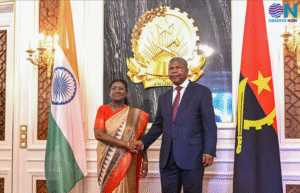Finance Minister Nirmala Sitharaman Calls for Tech-Savvy Workforce to Safeguard Digital Infrastructure
Union Finance and Commerce Minister Nirmala Sitharaman stressed the importance of developing a tech-savvy workforce to safeguard digital infrastructure such as banks and stock markets in light of the growing misuse of technology to disrupt these systems.
Speaking at the fourth convocation of Rashtriya Raksha University (RRU) in rural Gandhinagar, she called on the institution to ensure that academic programs evolve in line with rapidly advancing technologies, which become obsolete every two years.
Sitharaman lauded RRU for addressing a critical gap in national security training and upskilling, noting that while technology boosts productivity, it is also vulnerable to exploitation by malicious forces. She highlighted the threat to essential systems such as digital payments, stock markets, and online services like e-marketing and ride-hailing platforms, which are increasingly susceptible to digital disruptions.
Emphasizing the fast-paced evolution of technology, Sitharaman stated, “What was technology two years ago is slightly outdated today. You have newer technology replacing it, so the training you offer must constantly evolve, ensuring that trained personnel are equipped to handle both physical and digital security.” She urged RRU to stay ahead of emerging threats and maintain cutting-edge training to protect national assets and the public from cyber threats.





























